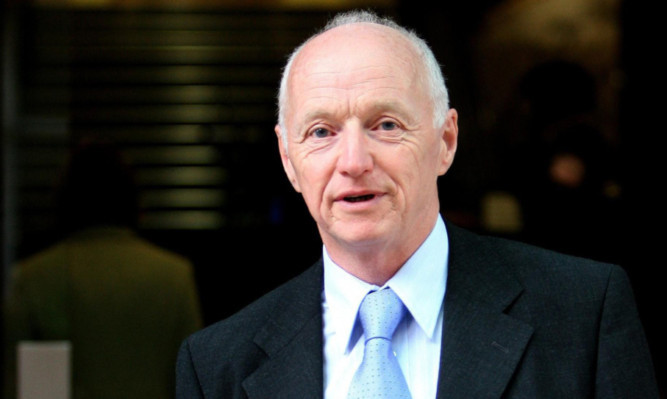
Picture the scene. You’re a doctor facing an elderly couple you’ve known for decades. You know they’re sensible, rational people who’ve tackled everything in life together. They look you straight in the eyes and say: “We don’t want to go on. Can you help?”
Most doctors do what most relatives do change the subject fast. Not Dr Iain Kerr. On three occasions in the early 1990s, the East Renfrewshire GP handed over enough sleeping pills and anti-depressants to let one elderly couple and two other patients take their own lives. This is “patient involvement” above and beyond the call of duty. If you believe in the sanctity of life, it’s immoral. If you worry about doctors acting like God, it’s scary. It could have meant prosecution for culpable homicide. It did mean Dr Kerr’s suspension for six months by the General Medical Council. So why did he act as he did, why has the doctor decided to speak out now and should Scots law change to make assisted dying legal?
Anyone who saw the retired, carefully spoken, mild-mannered GP on television last week will have been impressed by his evident sincerity and honesty. During a remarkably frank interview on STV he admitted none of the patients he helped had a terminal illness. The elderly couple hardly left home because the man had circulation problems, struggled to walk and had failing eyesight his wife was agoraphobic but otherwise healthy. Not the strongest medical case for assisted suicide you might think.
Indeed Dr Kerr conceded his actions might be different now thanks to improvements in care and pain relief. But that doesn’t obscure the enduring human dilemma. Some people don’t want to keep battling pain, depression and loneliness.
What are GPs to do? If they refuse to discuss end of life scenarios, some patients will take matters into their own hands and involve family members. Others will carry on and may find a new outlook, drug or purpose in life or just keep on suffering. Who can ever say what lies ahead? All a mere human can do is weigh the probabilities. But are doctors able to tell who can and cannot carry on? And even if they can should they intervene?
In 1990 Dr Kerr suggested the couple tell their daughter what they planned: “If she had no objections, I would give them the prescription, which in fact I did.”
The deaths of the couple, side by side, and Iain’s involvement were reported at the time. A neighbour said: “If that is what they decided to do, to die peacefully together, then I applaud their courage.”
A few years later Dr Kerr advised another patient with chronic breathing problems who asked how many antidepressants might cause death. The doctor paid a visit after the overdose had been taken. He said: “He was still alive and I phoned his sister to tell her what had happened, and to say I was not planning to send him to hospital, and she was OK with that.”
Assisted dying is legal in Belgium, Luxembourg, Switzerland, the Netherlands and three American states. Margo McDonald MSP wants the same for Scotland, though her current Bill would legalise help for the terminally ill, not the kind of patients advised by Dr Kerr.
No one wants to talk about dying, chronic pain or despair and yet these conditions affect tens of thousands of people every day. It takes a special sort of person to make us focus on this reality and neither turn away nor jump to hasty conclusions.
Iain Kerr is such a man.

Enjoy the convenience of having The Sunday Post delivered as a digital ePaper straight to your smartphone, tablet or computer.
Subscribe for only £5.49 a month and enjoy all the benefits of the printed paper as a digital replica.
Subscribe